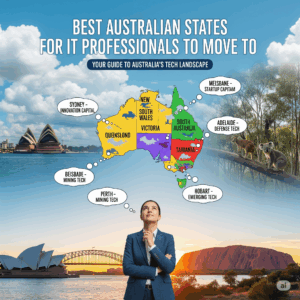Explore childcare and schooling options for skilled migrant families. Learn about subsidies, enrollment steps, and the education system for immigrants.
Introduction
Australia welcomes over 150,000 skilled migrants yearly, many with young families seeking quality care and education. Choosing the right childcare and schooling for skilled migrants is vital for successful settlement. This guide explains available options, support services, and steps to navigate Australia’s diverse education system as a new migrant family.
Choosing Childcare: Options & Support for Migrant Families
Finding reliable childcare for skilled migrants is often the first concern for working parents. Australia features a variety of tailored solutions:
- Long Day Care (LDC): Provides full-day care and education for children aged six weeks to six years. These centers operate during standard working hours and use the Early Years Learning Framework (EYLF) to support learning and development.
- Family Day Care (FDC): Small group care at a qualified educator’s home, offering a personalized and flexible setting—ideal for parents needing non-traditional hours.
- Occasional Care: Short-term, flexible services useful for part-time workers or parents needing temporary care.
- In-Home Care: Qualified educators care for children in the family’s home. Suitable for shift workers or children with special needs.
- Preschool & Kindergarten: Early learning programs for ages 3–5 focused on preparing children for school academically and socially.
Financial support is available: the Australian Child Care Subsidy (CCS) significantly reduces out-of-pocket costs, with the exact amount based on income, work hours, and care type. This childcare subsidy for migrants boosts affordability for eligible skilled migrants balancing work and parenting.
Navigating the Australian Education System: Enrollment & Options
Choosing the right school is central to integrating your child into their new community. Australia’s education system for immigrants welcomes diversity and offers strong support:
- Public Schools: Government-funded, multicultural environments with free or low-fee access. Some visa types require small contributions, but costs are still well below private alternatives. Most public schools offer English as an Additional Language or Dialect (EAL/D) support, aiding non-native speakers.
- Private & Faith-Based Schools: Fee-charging institutions offering various teaching philosophies or religious values. Selection ranges from Catholic to Montessori and Steiner schools. Discounts or scholarships may be offered but tuition is higher than public schools.
- How to Find Schools as a New Migrant: Use local government online tools or visit schools directly for tours. Factors to consider include school location (most children attend schools in their catchment), curriculum strengths, multicultural support programs, and transportation links.
School enrollment for migrant children involves providing identity documents, proof of address, visa information, and immunization records. Contact the local school early to ensure a place—public schools may have enrollment limits by zone.
Many schools offer before and after school care programs (BASC), providing supervised homework time and activities for working families. Community and multicultural networks help ease the transition and provide ongoing support.
Early Education as a Pathway for Skilled Migrants
For migrants with qualifications in childcare or education, Australia’s demand offers a practical education guide for skilled migrants. Early childhood education and care is now a core skill on skilled occupation lists, allowing for direct migration opportunities and permanent residency pathways. There is a strong government focus on recruiting qualified educators, and skilled migrants in this field benefit from long-term job stability and clear PR routes.
If you or your spouse work as a child care educator, teacher, or center manager, government pathways—including the Skills in Demand visa and employer-sponsored options—can ease the journey to permanent settlement. Specialized support and community grants are also available for those entering the field.
Childcare and Schooling
Securing quality childcare and schooling for skilled migrants greatly enhances your family’s settlement success in Australia. By understanding your options, leveraging subsidies, and using community resources, you ensure your children are supported and your migration experience is positive. Begin your research early to access the best childcare and schools for your family.

